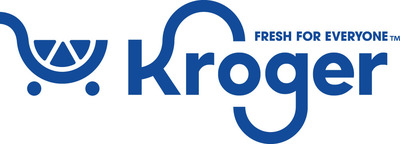Kroger Unveils New Produce Supplier Biodiversity Goal
Change will protect more pollinators, create more sustainable produce supply chain
"We depend on a healthy and resilient agriculture supply chain to keep bringing fresh, affordable food to more of America," said Lisa Zwack, head of sustainability for Kroger. "This new goal reflects Kroger's evolving approach to sustainability and resource conservation, including setting clear expectations with growers to support the transition to more sustainable fresh food production."
Protecting biodiversity is an important part of Kroger's community impact strategy, Thriving Together. By encouraging growers to use less pesticides, the company is taking meaningful steps to improve pollinator health outcomes. This work builds on Kroger's existing focus on conserving natural resources in our supply chain, including through our seafood sustainability and no-deforestation commitments.
Kroger worked with the Sustainable Food Group, a branch of IPM Institute of
"We are incredibly proud to have supported Kroger in the development of this policy, which will drive positive outcomes for biodiversity, including pollinator and broader agroecosystem health through adoption of robust Integrated Pest Management and other sustainable agriculture practices across fresh produce supply chains," said Ariel Larson, Senior Project Manager at Sustainable Food Group.
Suppliers can comply by achieving one of the following certifications:
- Bee Better
- Biodynamic
- Certified Sustainably Grown
- Equitable Food Initiative
- Fair Trade International
- Fair Trade
USA - GLOBAL G.A.P.
- LEAF MARQUE
- MPS-ABC
- Rainforest Alliance
- Regenerative Organic
- Sustainable Food Group Sustainability Standard
- USDA Organic, or international equivalents
Kroger will continue to expand its focus on sustainable agriculture, biodiversity and conservation. To take additional steps toward a more sustainable food system, the retailer will conduct a supply chain biodiversity risk assessment, pilot biodiversity metrics with row crop and specialty crop suppliers and conduct targeted climate risk assessments within its supply chain.
To learn more about Thriving Together, download Kroger's 2023 report.
About Kroger
At The Kroger Co. (NYSE: KR), we are dedicated to our Purpose: To Feed the Human Spirit™. We are, across our family of companies nearly half a million associates who serve over 11 million customers daily through a seamless digital shopping experience and retail food stores under a variety of banner names, serving America through food inspiration and uplift, and creating #ZeroHungerZeroWaste communities by 2025. To learn more about us, visit our newsroom and investor relations site.
![]() View original content to download multimedia:https://www.prnewswire.com/news-releases/kroger-unveils-new-produce-supplier-biodiversity-goal-302045699.html
View original content to download multimedia:https://www.prnewswire.com/news-releases/kroger-unveils-new-produce-supplier-biodiversity-goal-302045699.html
SOURCE The Kroger Co.









